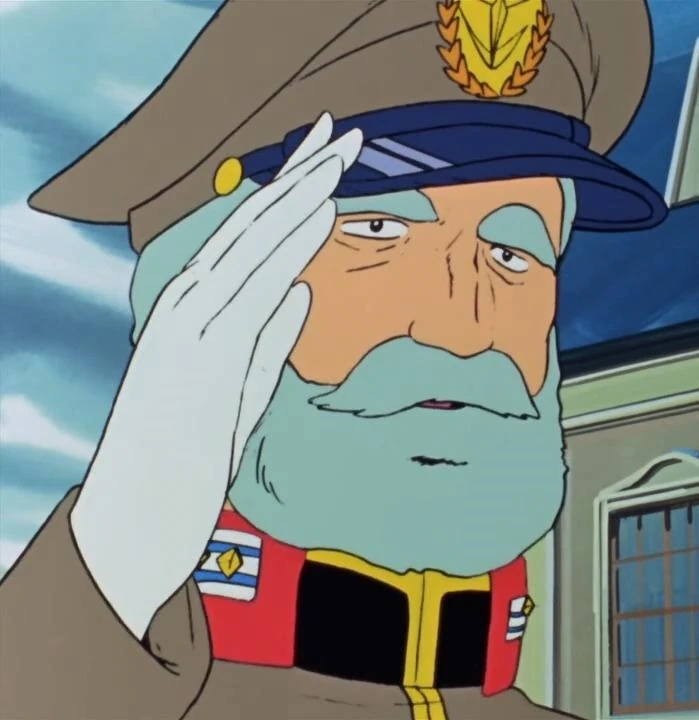In the universe of Mobile Suit Gundam, the Earth Federation represents one of the most powerful and complex political forces, set against a constant struggle for control of both Earth and the space colonies. While the Federation is portrayed as the defender of humanity, its decisions and methods have sparked tensions and conflicts that reveal its darker sides. This article explores its power structure, key leaders, and how control over humanity has led to political frictions that triggered tragic events in the history of the Universal Century.
Government Structure: An Imposing Bureaucracy
The Earth Federation is depicted as a rigid and highly bureaucratic institution, with a complex chain of command and a system of ministries and specialized departments. While the Federation is theoretically democratic, many decisions come from closed circles of power on Earth, leaving the colonies in a subordinate and marginalized role. At its core, the Federation Council represents the legislative body, and the Supreme Commander of the Federation is the highest military and executive authority, responsible for coordinating defense and expansion efforts.
Each department is dedicated to specific functions, including managing natural resources and overseeing colonial affairs. Despite this division, bureaucratic problems and internal rivalries often delay or complicate the execution of important decisions, creating a sense of disconnection between the Federation and the inhabitants of the space colonies, known as Spacenoids.
Key Leaders: Power Figures in a Turbulent World
The Federation has been led by a series of iconic figures who have defined and shaped its politics throughout the most important conflicts. Among these leaders are names that marked the greatest crises and transformations in the history of the Universal Century.

General Revil: A symbolic figure in the One Year War, General Revil stood out not only for his military skill but also for his ability to inspire the Federation's troops and citizens. His famous speech, "Zeon is Exhaustible," marked a turning point in the mobilization against the Principality of Zeon, giving hope to citizens at a time when the Federation seemed disadvantaged..
Jamitov Hymem: Admiral Hymem represents a darker side of the Federation. As the leader of the Titans, an elitist and brutal faction within the Federation, Jamitov promoted an agenda of oppression and total control over the colonies, sparking the Titans' War. His rise and draconian leadership style reflect the corruption and lack of empathy in certain sectors of the government.
Bright Noa: Although he never reached the highest positions of power, Bright Noa is one of the most ethical figures within the Federation, questioning orders that put his subordinates at risk. Throughout his career, Noa faces moral dilemmas in serving an organization that sometimes contradicts his principles. His role illustrates how power within the Federation impacts both people within the system and those under its control.
Control of the Colonies: The Ongoing Tension with the Spacenoids
The relationship between the Federation and the space colonies is one of the most complex aspects of its politics. While the Federation maintains authority over the resources and economy of the colonies, the Spacenoids live with a sense of discontent and oppression, fueling their desire for autonomy. This discontent is expressed through resistance movements and the rise of factions like the Principality of Zeon, which fought for the colonies' independence and against the perceived tyranny of the Federation.
Instead of promoting dialogue to pacify the Spacenoids' interests, the Federation often responds with authoritarian measures, such as the creation of the Titans, whose mission of "peace" turned into a ruthless tyranny that fueled new conflicts. This unequal relationship generates tensions that lead to successive wars, consolidating a negative perception of the Federation among the colonists and strengthening the narrative that Earth acts solely in its own interest.
Ethics and the Use of Power: A Defense of Humanity or an Act of Oppression?
One of the central conflicts that the Gundam universe masterfully presents is the Federation's ethical dilemma. While it defends peace and order on Earth and in the colonies, its authority is questioned when examining the tactics employed. The use of nuclear weapons, the manipulation of resources, and the development of repressive policies in space have been evidence of an organization that doesn't always act in favor of the common good.
This duality raises questions about the morality of the Federation, which justifies its actions under the premise that they protect humanity, but in the end, results in practices that contradict these ideals. In its attempt to maintain stability, the Federation prioritizes its power and control, often at the expense of the colonies' freedom. Thus, its supremacy turns into a veiled oppression, forcing the Spacenoids to seek independence at any cost.
The Earth Federation, with its complex government structure and influential leaders, represents both stability and conflict in the history of the Universal Century. Its efforts to dominate Earth and space have created not only a system of power but also a legacy of struggles and distrust between Earth dwellers and the inhabitants of space. While its objectives may be grand and noble in theory, the reality of its governance is riddled with ethical conflicts and territorial tensions that reflect the dilemma of any superpower: Can total control be justified under the banner of peace and security?
-----
If you're a Gundam fan, you're surely fascinated by these details and how the Earth Federation has influenced the history of the Universal Century. Let us know in the comments what you think about its authority and impact on the colonies! Does the Federation justify its means, or has it become what it swore to fight? We're eager to hear your opinion!


